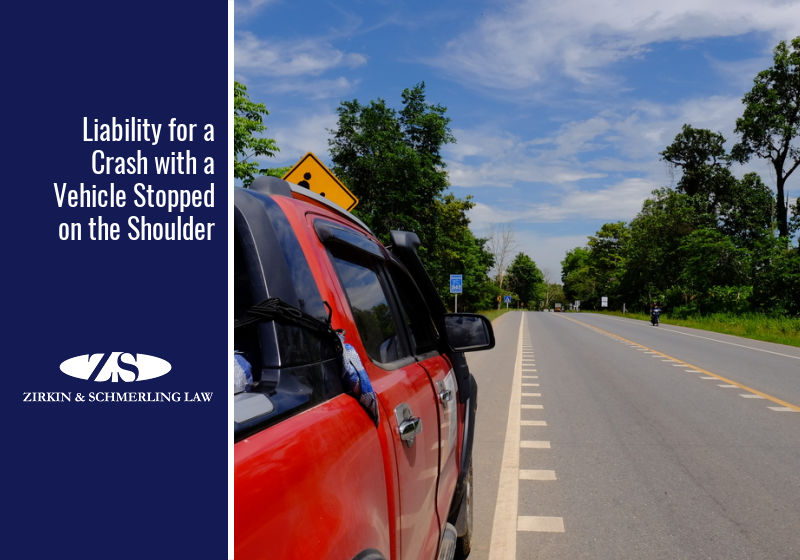
Parking on the shoulder can often be highly dangerous, especially when parking on an interstate or highway, but pulling over onto the shoulder is sometimes necessary. If you experience vehicular troubles that require immediate attention, such as a flat tire or overheating, you more than likely will need to park on the shoulder.
Unfortunately, this leaves you and your passengers exposed to potentially dangerous drivers who may drive recklessly or with distractions. Accidents on the shoulder are incredibly common and can often lead to serious or even fatal injuries.
Although the person who crashed into the parked vehicle is typically at fault for the accident, there are situations in which fault may be shared. Maryland is a contributory negligence state, meaning that if you are partially to blame for a traffic accident, you will not receive compensation from the other party. You need to be aware of how fault is determined when a crash occurs on the shoulder so that you can avoid being found partially at fault.
Maryland’s Move Over Law and Lane Limitations
Every state in America features a Move Over law, meaning that drivers are required to change lanes away from the shoulder if a vehicle is parked, but the details of Move Over laws differ from state to state. In Maryland, drivers are only required to move over if an emergency vehicle is parked on the shoulder.
Additionally, the emergency vehicle needs to be flashing lights, and drivers need to be able to change lanes safely. If changing lanes isn’t safe or will disrupt traffic, drivers can merely slow down if an emergency vehicle is parked on the shoulder.
If a driver crashes on the shoulder where an emergency vehicle is present, they could receive a traffic citation and be held liable for damages. Crashing into an emergency vehicle is highly dangerous and can have dire consequences that may be fatal.
In addition to the Move Over law, it’s important to note that Maryland features laws requiring drivers to stay in one lane. If you’re driving and hit someone who’s parked entirely on the shoulder, you moved out of your lane, meaning that you’d likely be held liable for the accident.
When is a Stopped Vehicle At Fault?
Although liability is usually placed on the driver who crashed into a vehicle parked on the shoulder, the driver of the parked car can still be held partially or entirely liable. If the person parked on the shoulder has part of their vehicle protruding into an active lane of traffic, they may be found partially or entirely to blame for the accident.
Additionally, a parked driver could be found at fault if they fail to provide sufficient visibility. If you’re on the side of the road at night, you should turn on your hazard lights. You can also use road flares to increase your visibility for passing drivers. If you don’t increase your vehicle’s visibility at night, you could be held partially liable for a wreck.
An easy step you can take to avoid potential traffic accidents that occur on the shoulder is to be diligent about routine maintenance. If you regularly get your car and tires checked, you may be able to avoid requiring roadside maintenance. In the event that you need to pull over, you can also pull off of the interstate or highway to increase your safety and the safety of others on the road.
Contact Maryland Car Accident Attorneys Today
Every year, over 50,000 people are injured on Maryland roads. If you or a loved one are involved in a traffic accident, you need to contact an attorney. The aftermath of a car accident can often be difficult to navigate, especially when it results in personal injuries. You need a team of legal professionals to help you handle your accident and get you the compensation you deserve if the other party was at fault. For expert legal support for car accidents and personal injuries, contact Zirkin & Schmerling Law at -410-356-4455 or click here for a free case consultation.
